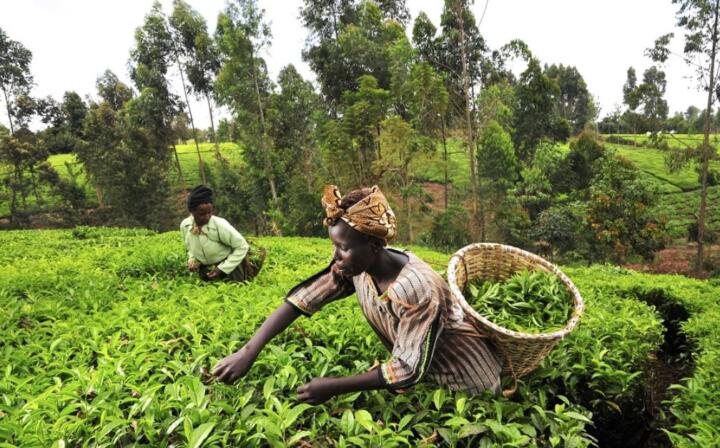The Federal Government has set forth an ambitious plan to cultivate 500,000 hectares of irrigable land for dry-season farming, aiming to bolster food security across the nation. This initiative was disclosed by the Minister of Water Resources and Sanitation, Prof. Joseph Utse, during the inauguration of the 2023 dry season farming of the Benin Owena River Basin Development Authority (BORBDA) in Benin on Thursday.
In his comprehensive address, Minister Utse called upon state governments and local communities to collaborate closely by allocating land to the 12 basin authorities operating nationwide. This collaborative effort is seen as pivotal in achieving the overarching goal of significantly increasing food production throughout the country.
The Minister of Water Resources emphasized the ministry’s commitment to engaging in partnerships with various stakeholders to align with the president’s directives. Prof. Utse underscored that BORBDA has already taken proactive steps by initiating the cultivation of approximately 700 hectares of land for the ongoing year’s dry season farming. This proactive approach aligns with the broader strategy of the government to enhance food production and mitigate food insecurity.

Furthermore, the minister shed light on the potential of the Clay Pot Irrigation System (CPIS) and drip irrigation facilities within the ministry. These innovative irrigation methods are positioned to support year-round farming, particularly benefiting smallholder farmers who play a crucial role in the country’s agricultural landscape.
The Minister’s Statements:
Prof. Utse highlighted the pivotal role of the ministry in providing the necessary water resources to farmers, aligning with the food security agenda set forth by President Tinubu. The overarching aim is to make food more readily available and affordable to the Nigerian populace.
Calling on other river basins under the ministry, Prof. Utse urged them to kickstart dry season farming initiatives across their catchment communities. He emphasized the importance of collaborating with local farmers to facilitate access to water, thereby enhancing their farming activities.
“We have access to water, which is critical for dry season farming, and we have the capacity and technical knowledge to assist local farmers. So, I want our farmers to seize this opportunity to contribute to ensuring food security for the country,” remarked the minister.
Unveiling of Hydrological Yearbooks:
In addition to outlining the plans for dry-season farming, Prof. Utse seized the opportunity to unveil the hydrological yearbooks for the years 2021 and 2022 of the Benin Owena River Basin Authority. These yearbooks, he explained, play a crucial role in the planning, designing, and construction of water projects. By providing essential data and insights into the hydrological conditions of the region, these yearbooks become invaluable tools in the effective management of water resources.
In conclusion, the Federal Government’s commitment to expanding irrigable land for dry-season farming reflects a strategic effort to address food security challenges in Nigeria. The collaborative approach advocated by Minister Utse, coupled with the exploration of innovative irrigation systems, underscores a holistic and forward-thinking approach to agriculture. As the government works towards its goals, partnerships with local communities and stakeholders will be pivotal in ensuring the success of these initiatives and, ultimately, in securing a more sustainable and food-secure future for the nation.
Support InfoStride News' Credible Journalism: Only credible journalism can guarantee a fair, accountable and transparent society, including democracy and government. It involves a lot of efforts and money. We need your support. Click here to Donate
